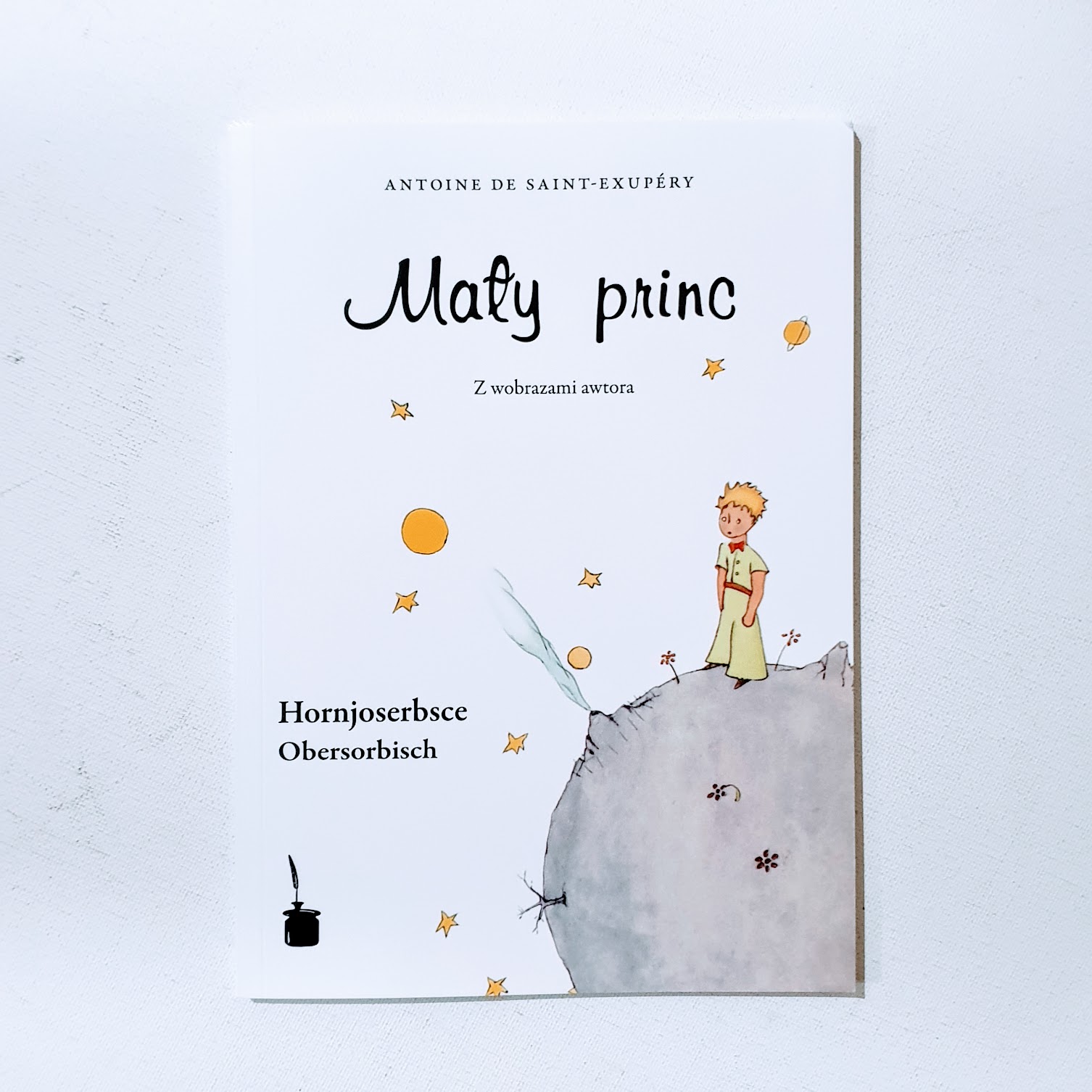
Mały Princ — in Upper Sorbian.
Upper Sorbian, or Hornjoserbšće, is a West Slavic language spoken in the eastern part of Germany, primarily in the state of Saxony, in a region historically known as Lusatia (Łužica in Sorbian). It is one of two Sorbian languages, the other being Lower Sorbian. Upper Sorbian is spoken by a smaller community compared to Lower Sorbian, yet it has managed to maintain a higher level of vitality and is more widely used in public and cultural life.
The Sorbian languages are the remnants of the Slavic dialects spoken by the Slavic tribes that settled in Lusatia around the 6th century. Over the centuries, the Sorbian-speaking area has gradually diminished due to Germanisation policies, economic pressures, and cultural assimilation. Despite these challenges, the Sorbian community has preserved its language and cultural identity, partly due to the establishment of Sorbian institutions and the support of cultural associations.
Upper Sorbian shares many features with other West Slavic languages, such as Czech and Polish. It has a rich system of inflection for nouns, pronouns, adjectives, and verbs. Phonologically, it is characterized by features such as vowel length distinction and a relatively complex consonant system, including palatalisation.
Upper Sorbian is written using the Latin alphabet, augmented with diacritics to represent specific phonetic qualities, similar to Czech and Polish.
Estimates of the number of Upper Sorbian speakers vary, with figures ranging from around 20,000 to 40,000. The language is used in daily communication within Sorbian communities, in Sorbian-language media, education, and religious services.
The Domowina – Federation of Lusatian Sorbs is a significant cultural organisation that advocates for the rights of the Sorbian people and promotes their language and culture. Additionally, the Sorbian Institute (Serbski Institut) conducts research on Sorbian history, language, and culture. There are also specific legal protections and support mechanisms for the Sorbian language and culture within the German framework, recognising the Sorbs as a national minority.


